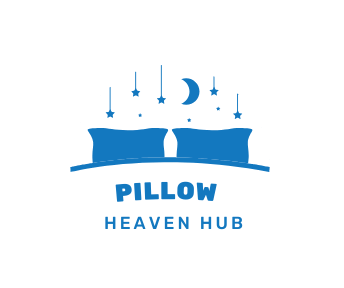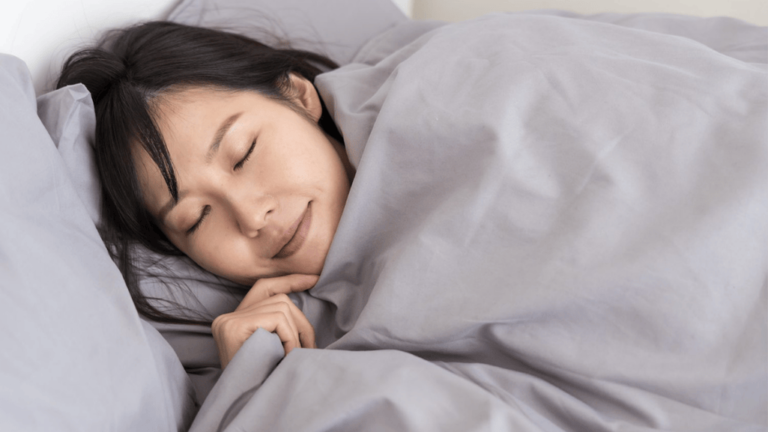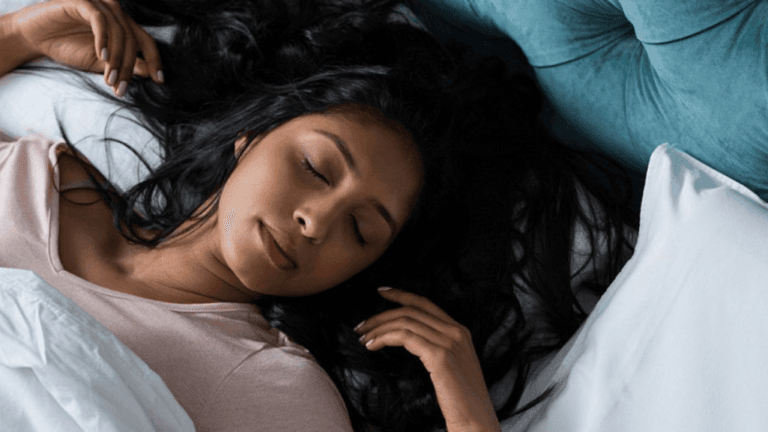Getting a good night’s sleep is essential for maintaining optimal physical and mental health. Unfortunately, over 60 million Americans struggle with poor sleep quality, which can lead to a host of negative consequences, including memory issues, concentration problems, mood disturbances, and increased risks for depression, obesity, type 2 diabetes, heart disease, and high blood pressure. If you’re one of the many individuals seeking to improve your sleep quality, consider exploring the world of night time sleep aids.
The global sleep aids market, valued at $67 billion in 2022, is projected to grow to an impressive $130 billion by 2032. This growth is fueled by the increasing demand for solutions to combat sleep disorders and improve overall sleep quality. From natural remedies like melatonin supplements and herbal teas to over-the-counter antihistamines and prescription medications, there are numerous options available to help you achieve a more restful and rejuvenating sleep.
In addition to exploring sleep aids, it’s crucial to adopt healthy sleep hygiene tips and relaxation techniques to create a sleep-friendly environment. Simple changes like maintaining a consistent sleep schedule, creating a calming bedtime routine, and optimizing your bedroom temperature (between 65 and 72 degrees Fahrenheit) can significantly improve your sleep quality. For those experiencing specific challenges, such as women dealing with hot flashes during menopause, additional strategies like wearing breathable fabrics and using dim light sources for nighttime bathroom trips can help minimize sleep disruptions.
Key Takeaways
- Poor sleep quality affects over 60 million Americans and can lead to various health issues.
- The global sleep aids market is growing rapidly, with numerous options available, including natural remedies and over-the-counter products.
- Adopting healthy sleep hygiene tips and relaxation techniques can significantly improve sleep quality.
- Maintaining a consistent sleep schedule and creating a calming bedtime routine are essential for better sleep.
- Optimizing bedroom temperature and using dim light sources can help minimize sleep disruptions.
Understanding Sleep Disorders and Insomnia
Getting a good night’s sleep is essential for optimal health and well-being, but for many individuals, this seemingly simple task can be a challenge. Sleep disorders, such as insomnia and sleep apnea, affect millions of people worldwide, leading to daytime fatigue, impaired cognitive function, and a range of health issues. By understanding the common types of sleep disorders, their symptoms, and potential causes, we can take the first steps towards improving our sleep quality and overall health.
Common Sleep Disorders
Sleep disorders encompass a wide range of conditions that disrupt an individual’s ability to achieve restful, restorative sleep. Some of the most prevalent sleep disorders include:
- Insomnia: Difficulty falling asleep, staying asleep, or waking up too early
- Sleep Apnea: Interrupted breathing during sleep, often accompanied by snoring
- Restless Legs Syndrome: An irresistible urge to move the legs, particularly at night
- Narcolepsy: Excessive daytime sleepiness and sudden sleep attacks
- Circadian Rhythm Disorders: Disruptions to the body’s internal sleep-wake cycle
Symptoms of Insomnia
Insomnia, the most common sleep disorder, is characterized by a range of symptoms that can significantly impact an individual’s quality of life. These symptoms may include:
- Difficulty falling asleep at night
- Waking up frequently during the night
- Waking up too early in the morning
- Feeling unrefreshed or tired upon waking
- Daytime fatigue, sleepiness, or irritability
- Difficulty concentrating or focusing on tasks
According to a study by Mellinger et al. in 1985, insomnia is a prevalent issue affecting a significant portion of the population, with more recent research by Dollander in 2002 further confirming its widespread impact.
Causes of Sleep Problems
Sleep problems can stem from a variety of factors, including lifestyle choices, medical conditions, and psychological issues. Some common causes of sleep disturbances include:
- Stress, anxiety, or depression
- Irregular sleep schedules or poor sleep habits
- Medical conditions such as chronic pain, heartburn, or asthma
- Medications that interfere with sleep
- Excessive consumption of caffeine, alcohol, or nicotine
- Environmental factors such as noise, light, or temperature
| Sleep Disorder | Prevalence | Associated Health Risks |
|---|---|---|
| Insomnia | 10-30% of adults | Depression, anxiety, cardiovascular disease |
| Sleep Apnea | 2-7% of adults | Hypertension, heart disease, stroke |
| Restless Legs Syndrome | 5-10% of adults | Daytime fatigue, reduced quality of life |
By recognizing the signs and symptoms of sleep disorders and understanding their potential causes, individuals can take proactive steps to improve their sleep quality and overall well-being. Implementing healthy sleep habits, seeking medical guidance when necessary, and addressing underlying health issues can pave the way for more restful, rejuvenating sleep.
The Importance of Healthy Sleep Habits
Developing and maintaining healthy sleep habits, also known as sleep hygiene, is essential for achieving optimal sleep quality and overall well-being. By establishing a consistent sleep schedule and creating a relaxing bedtime routine, you can significantly improve your ability to fall asleep, stay asleep, and wake up feeling refreshed and energized.
Establishing a Regular Sleep Schedule
One of the most important aspects of healthy sleep habits is maintaining a consistent sleep schedule. This means going to bed and waking up at the same time every day, even on weekends. By doing so, you help regulate your body’s internal clock, known as the circadian rhythm, which plays a crucial role in regulating sleep-wake cycles.
According to the National Sleep Foundation, the recommended amount of sleep varies by age group:
| Age Group | Recommended Sleep Duration |
|---|---|
| Newborns (0-3 months) | 14-17 hours |
| Infants (4-12 months) | 12-16 hours (including naps) |
| Toddlers (1-2 years) | 11-14 hours (including naps) |
| Preschoolers (3-5 years) | 10-13 hours (including naps) |
| School-age children (6-12 years) | 9-12 hours |
| Teenagers (13-17 years) | 8-10 hours |
| Adults (18-60 years) | 7 or more hours |
| Adults (61-64 years) | 7-9 hours |
| Adults (65+ years) | 7-8 hours |
By adhering to these recommended sleep durations and maintaining a regular sleep schedule, you can improve your overall sleep quality and reduce the risk of various health problems associated with insufficient sleep, such as obesity, diabetes, and cardiovascular disease.
Creating a Relaxing Bedtime Routine
In addition to establishing a consistent sleep schedule, creating a relaxing bedtime routine can help signal to your body that it’s time to wind down and prepare for sleep. A bedtime routine should include activities that promote relaxation and reduce stress, such as:
- Taking a warm bath or shower
- Reading a book or listening to calming music
- Practicing relaxation techniques, such as deep breathing or meditation
- Stretching or gentle yoga
- Journaling or writing down thoughts and worries
By incorporating these activities into your nightly routine, you can create a peaceful environment that promotes better sleep. It’s also important to avoid stimulating activities before bedtime, such as watching television, using electronic devices, or engaging in intense physical exercise, as these can interfere with your ability to fall asleep.
Good sleep hygiene is all about putting yourself in the best position to sleep well each and every night.
By prioritizing healthy sleep habits and making them a part of your daily routine, you can significantly improve your sleep quality, boost your overall health and well-being, and wake up feeling refreshed and ready to tackle the day ahead.
Natural Remedies for Better Sleep
If you’re struggling with occasional sleeplessness or looking for ways to enhance your sleep quality, exploring natural remedies can be a gentle and effective approach. By incorporating herbal teas, supplements, relaxation techniques, and improved sleep hygiene, you may find the restful slumber you’ve been seeking without relying on prescription medications.
Herbal Teas and Supplements
Certain herbal teas and supplements have been used for centuries to promote relaxation and improve sleep quality. Chamomile tea, a popular choice, is known for its calming effects. Valerian root, another well-known sleep aid, is commonly taken in doses of 300–600 milligrams to support better sleep. Melatonin supplements, which mimic the body’s natural sleep hormone, are generally provided in doses of 3–10 milligrams before bedtime. As little as 0.1 to 0.3 milligrams of melatonin may be effective for most individuals, and fast-release formulas may be more beneficial compared to slow-release options.
Other herbal remedies like passionflower extract have shown significant improvements in total sleep time, sleep efficiency, and wake time after sleep onset in individuals with insomnia. Magnesium supplementation may also help reduce the time it takes to fall asleep. However, it’s essential to approach these remedies with caution and consult a healthcare professional before starting any new supplement regimen.
Relaxation Techniques and Meditation
Incorporating relaxation techniques and meditation into your bedtime routine can help calm the mind and body, making it easier to drift off to sleep. Deep breathing exercises, progressive muscle relaxation, and guided imagery are all effective methods for reducing stress and promoting a sense of tranquility. Mindfulness meditation, which involves focusing on the present moment without judgment, has been shown to improve sleep quality and reduce symptoms of insomnia.
Take a few minutes each night to sit quietly, close your eyes, and focus on your breath. Allow thoughts to come and go without attachment, and gently redirect your attention back to your breath whenever your mind wanders.
Improving Sleep Hygiene
Creating a sleep-conducive environment and establishing healthy sleep habits can go a long way in improving the quality and quantity of your rest. Some key aspects of good sleep hygiene include:
- Maintaining a consistent sleep schedule, even on weekends
- Ensuring your bedroom is cool, dark, and quiet
- Investing in a comfortable mattress and pillows
- Avoiding caffeine, alcohol, and large meals close to bedtime
- Reducing exposure to blue light from electronic devices at least an hour before sleep
By prioritizing these simple yet effective strategies, you can create an environment that is more conducive to restful sleep and establish habits that promote better sleep quality over time.
| Natural Remedy | Recommended Dosage | Potential Benefits |
|---|---|---|
| Chamomile Tea | 1-2 cups before bedtime | Calming effects, promotes relaxation |
| Valerian Root | 300-600 mg before bedtime | Improves sleep quality, reduces time to fall asleep |
| Melatonin | 0.1-10 mg before bedtime | Regulates sleep-wake cycle, reduces time to fall asleep |
| Magnesium | 200-400 mg daily | Reduces time to fall asleep, promotes muscle relaxation |
Remember, while natural remedies can be a safe and effective way to improve sleep, it’s always best to consult with a healthcare professional before starting any new treatment, especially if you have underlying health conditions or are taking medications.
Over-the-Counter Sleep Aids: Pros and Cons
When struggling with occasional sleeplessness, many people turn to over-the-counter (OTC) sleep aids for relief. These medications can be effective in the short term, but it’s essential to understand their potential benefits and drawbacks before using them. Let’s take a closer look at some common OTC sleep aids and their associated risks.
Antihistamines as Sleep Aids
Antihistamines like diphenhydramine (Benadryl) and doxylamine (Unisom) are frequently used as OTC sleep aids. They work by blocking histamine, a neurotransmitter that promotes wakefulness. While these medications can be helpful for short-term insomnia, they may cause side effects such as:
- Daytime drowsiness and grogginess (hangover effect)
- Dry mouth and throat
- Blurred vision
- Constipation
- Confusion, especially in older adults
It’s important to note that approximately 8 out of 10 people may experience a hangover effect after taking sleep medicine, which could impact daily activities. Additionally, antihistamine-based sleep aids are not recommended for individuals aged 75 or older due to increased risks of side effects.
Melatonin Supplements
Melatonin is a hormone naturally produced by the body to regulate sleep-wake cycles. Melatonin supplements have gained popularity as a natural sleep aid, and they are generally well-tolerated. However, they can still cause side effects in some individuals, such as:
- Headaches
- Nausea
- Dizziness
- Daytime sleepiness
To maximize the effectiveness of melatonin, it is suggested to take it 20 minutes to 2 hours before bedtime. While melatonin supplements are generally considered safe for daily use, it’s important to remember that they are not regulated by the government like prescription medications.
Potential Side Effects and Risks
While OTC sleep aids can provide temporary relief from insomnia, they also come with potential risks and side effects. Some key concerns include:
| Concern | Description |
|---|---|
| Dependence | Long-term use of sleeping pills can lead to dependence and rebound insomnia when the medication is stopped. |
| Reduced Effectiveness | Over time, the body may develop a tolerance to sleep aids, making them less effective. |
| Interactions | Sleep aids can interact with other medications and substances, such as alcohol, leading to dangerous side effects. |
| Masking Underlying Issues | Relying on sleep aids may prevent addressing the root causes of sleep problems, such as stress, anxiety, or medical conditions. |
If sleep problems persist for months, it is crucial to seek advice from a healthcare provider for appropriate treatment.
In conclusion, while OTC sleep aids like diphenhydramine, doxylamine, and melatonin can offer short-term relief for occasional insomnia, they should be used with caution. Understanding the potential side effects, risks of dependence, and the importance of addressing underlying sleep issues is crucial for anyone considering these medications. Always consult with a healthcare professional before starting any new sleep aid regimen.
Choosing the Right Night Time Sleep Aid
When it comes to selecting a sleep aid, it’s crucial to consider your individual needs and unique circumstances. With an estimated 35% of American adults struggling to get the recommended amount of sleep per night and over 8% relying on sleep aids multiple times a week, finding the right solution is more important than ever. Taking the time to carefully evaluate your options and consult with a healthcare professional can make all the difference in achieving a restful night’s sleep.
One key factor to consider when choosing a sleep aid is your specific sleep problem. Are you struggling to fall asleep initially, or do you find yourself waking up frequently throughout the night? Different sleep aids target various aspects of the sleep cycle, so understanding your unique challenges can help narrow down your options. For example, melatonin receptor agonists like Ramelteon are FDA-approved specifically for treating insomnia related to falling asleep, while orexin receptor antagonists work by influencing the overall sleep-wake cycle.
It’s also essential to take into account your personal health history and any potential interactions with existing medications. Studies have shown that women may be more significantly affected by certain sleep aids, such as Z drugs, compared to men when taking the same dose. Additionally, older adults, particularly those at higher risk of falls, should exercise caution and consult with their healthcare provider before starting any new sleep aid regimen.
Nearly two-thirds of American adults have tried supplemental melatonin for sleep-related issues, making it one of the most popular natural sleep aid options.
When exploring natural remedies, it’s important to consider the growing body of research surrounding various supplements and herbs. For instance:
- Magnesium supplements may benefit older adults with insomnia, according to limited research findings.
- L-Theanine has shown potential in improving sleep quality by reducing night awakenings and countering the negative effects of caffeine on sleep, with doses up to 200 mg per day appearing safe for most individuals.
- Supplemental glycine taken before bed may enhance sleep quality and decrease daytime sleepiness in those with insomnia symptoms.
- Valerian, an herbal sleep aid, may help individuals fall asleep faster and improve overall sleep quality when taken in doses between 300-600 mg up to an hour before bedtime.
| Sleep Aid | Key Benefits | Recommended Dosage |
|---|---|---|
| Melatonin | Helps regulate sleep-wake cycle | 0.5-5 mg, 30 min before bedtime |
| L-Theanine | Improves sleep quality, reduces night awakenings | 100-200 mg per day |
| Glycine | Enhances sleep quality, decreases daytime sleepiness | 3 g before bedtime |
| Valerian | Helps fall asleep faster, improves sleep quality | 300-600 mg, 30-60 min before bedtime |
Ultimately, the key to choosing the right night time sleep aid lies in understanding your individual needs and working closely with a trusted healthcare professional. By carefully considering your options and prioritizing safety, you’ll be well on your way to discovering the perfect solution for a peaceful, rejuvenating night’s rest.
Tips for Safe and Effective Use of Sleep Aids
When using sleep aids, it’s essential to prioritize safety and effectiveness to ensure the best possible outcome for your sleep health. By following proper dosage instructions, avoiding long-term reliance, and seeking medical advice when needed, you can successfully navigate the world of sleep aids and achieve the restful sleep you deserve.
Following Dosage Instructions
One of the most critical aspects of using sleep aids safely is adhering to the recommended dosage. Taking more than the prescribed amount can lead to adverse side effects and potentially dangerous situations. Always read the label carefully and follow the instructions provided by your healthcare professional or the manufacturer. Remember, taking the lowest effective dose is the best approach to minimize the risk of side effects.
“It is advisable to take sleeping pills strictly as prescribed by a healthcare provider and to avoid taking a higher dose than recommended.”
Avoiding Long-Term Reliance
Sleep aids are generally intended for short-term use, typically no more than a few weeks. Studies have shown that there is limited evidence on the safety and efficacy of using sleep aids for more than four weeks. Long-term use of sleep aids can lead to tolerance, requiring higher doses to achieve the same effects. Additionally, daily use of sleep aids may be linked to a higher risk of mortality and can affect sleep stages, impacting overall sleep quality.
| Duration of Use | Potential Risks |
|---|---|
| Short-term (less than 4 weeks) | Minimal risks, side effects may include next-day grogginess, nausea, and headaches |
| Long-term (more than 4 weeks) | Tolerance, higher risk of mortality, affected sleep stages, potential for misuse or dependence |
Consulting with a Healthcare Professional
Before starting any sleep aid regimen, it’s crucial to consult with a healthcare professional. They can provide personalized medical advice based on your individual health history, existing medications, and specific sleep concerns. Your doctor can help you weigh the potential benefits and risks of sleep aids, and determine if they are the right choice for your situation. They can also guide you on the proper dosage and duration of use, as well as recommend alternative strategies for improving sleep quality.
- Discuss your sleep concerns and medical history with your healthcare provider
- Ask about potential interactions with existing medications or health conditions
- Follow your doctor’s recommendations for dosage and duration of use
- Report any side effects or concerns to your healthcare provider promptly
By prioritizing safety and effectiveness when using sleep aids, you can work towards achieving the restful, rejuvenating sleep your body needs. Remember to always follow proper dosage instructions, avoid long-term reliance, and seek medical advice to ensure the best possible outcomes for your sleep health.
Alternative Strategies for Improving Sleep Quality
While sleep aids can be helpful for some individuals, there are also alternative strategies that can effectively improve sleep quality. By incorporating these sleep-promoting activities into your daily routine, you may find that you are able to achieve more restful and restorative sleep without relying on medication.
Regular Exercise and Physical Activity
Engaging in regular exercise and physical activity can have a profound impact on your sleep quality. A study published in the Journal of Clinical Sleep found that exercise can be an effective intervention for addressing insomnia and improving overall sleep quality. Aim to incorporate at least 150 minutes of moderate-intensity activity per week, as recommended by the CDC for adults ages 65 and older. However, it’s important to avoid intense exercise close to bedtime, as it may hinder your body’s ability to relax and unwind before sleep.
In addition to aerobic exercise, incorporating muscle-strengthening activities at least two days a week and balance activities can further support healthy sleep habits. By engaging in physical activity earlier in the day, you can promote feelings of tiredness and readiness for sleep come bedtime.
Managing Stress and Anxiety
Stress and anxiety can be significant contributors to sleep disturbances and insomnia. By implementing effective stress reduction techniques, you can create a more conducive environment for restful sleep. Consider incorporating relaxation practices such as deep breathing exercises, progressive muscle relaxation, or mindfulness meditation into your bedtime routine. Research has shown that mindfulness meditation can improve sleep and combat insomnia.
Other sleep-promoting activities that can help manage stress and anxiety include:
- Journaling or writing down your thoughts and worries before bed
- Engaging in relaxing hobbies such as reading, drawing, or listening to calming music
- Practicing yoga or gentle stretching to release tension and promote relaxation
- Maintaining a consistent sleep schedule and creating a peaceful bedroom environment
“Sleep is the golden chain that ties health and our bodies together.” – Thomas Dekker
By prioritizing stress reduction and incorporating these sleep-promoting activities into your daily life, you can significantly improve the quality and duration of your sleep. Remember, achieving optimal sleep is a holistic process that involves both physical and mental well-being.
| Strategy | Benefits |
|---|---|
| Regular Exercise | Promotes feelings of tiredness, improves sleep quality |
| Stress Reduction Techniques | Reduces anxiety, creates a conducive environment for sleep |
| Consistent Sleep Schedule | Regulates the body’s internal clock, enhances sleep quality |
| Relaxing Bedtime Routine | Signals the body to unwind and prepare for sleep |
By embracing these alternative strategies and making them a part of your daily life, you can unlock the door to better sleep and improved overall well-being. Remember, the journey to restful nights begins with the choices you make during the day.
When to Seek Professional Help for Sleep Problems
While occasional sleep disturbances are a normal part of life, chronic insomnia and persistent sleep problems that interfere with daily functioning may require professional intervention. If you’ve been struggling with sleep issues for more than a few weeks, it’s essential to consult with a healthcare provider or sleep specialist to determine the underlying cause and develop an effective treatment plan.
Insomnia can often be a symptom of another health condition, such as sleep apnea, restless leg syndrome, or mental health disorders like anxiety or depression. In fact, there are more than 100 specific sleep disorders, with the five most common types being sleep apnea, insomnia, narcolepsy, restless legs syndrome (RLS), and REM sleep behavior disorder. A medical evaluation by a qualified professional can help identify any underlying issues and guide appropriate treatment.
Persistent Insomnia and Sleep Disturbances
If you’ve been consistently experiencing difficulty falling asleep, staying asleep, or waking up too early for more than a month, it’s time to seek help. Chronic insomnia can have a significant impact on your overall health and well-being, increasing the risk of developing conditions like anxiety, depression, high blood pressure, heart disease, and diabetes.
“Insomnia is unlikely to get better without treatment, so it’s crucial to seek professional help if you’re struggling with persistent sleep problems.” – Dr. Sarah Thompson, Sleep Medicine Specialist
A sleep specialist may recommend keeping a detailed sleep diary for 1 to 2 weeks to gain a better understanding of your sleep patterns and habits. This information can be invaluable in determining the most effective treatment approach, which may include cognitive behavioral therapy (CBT), medication, or a combination of both.
Underlying Medical Conditions
Many medical conditions can disrupt sleep, making it essential to address any underlying health issues to improve sleep quality. Some common conditions that can interfere with sleep include:
- Heart disease
- Asthma
- Chronic pain
- Gastroesophageal reflux disease (GERD)
- Thyroid disorders
- Neurological conditions, such as Parkinson’s disease or Alzheimer’s disease
If you suspect that an underlying medical condition may be contributing to your sleep problems, it’s crucial to discuss your concerns with a healthcare professional. They can perform a thorough medical evaluation, which may include a sleep study to monitor various parameters such as eye movements, breathing rate, and brain waves during sleep.
| Symptom | When to Seek Immediate Medical Help |
|---|---|
| Worsening pain or difficulty breathing at night | Seek immediate medical care |
| Worsening mood or agitation leading to dangerous thoughts | Seek emergency medical help |
Remember, addressing chronic insomnia and persistent sleep disturbances is essential for maintaining optimal health and well-being. By working closely with a sleep specialist and exploring various treatment options, you can take control of your sleep and experience the countless benefits of a well-rested mind and body.
Conclusion
Achieving optimal sleep quality is a journey that requires a holistic approach, combining healthy lifestyle choices, natural remedies, and, when necessary, the responsible use of night time sleep aids. By prioritizing healthy sleep habits, such as maintaining a consistent sleep schedule, creating a relaxing bedtime routine, and managing stress, individuals can lay the foundation for improved sleep quality and overall well-being.
When occasional sleeplessness persists, over-the-counter sleep aids containing antihistamines or melatonin supplements may provide temporary relief. However, it is crucial to use these products judiciously and under the guidance of a healthcare professional to minimize potential side effects and risks. A study conducted in the Madinah region of Saudi found that 87.2% of participants had previously used medications containing diphenhydramine hydrochloride, with 31.9% currently using them, highlighting the widespread use of sleep aids.
Ultimately, the key to achieving better sleep lies in adopting a comprehensive approach that addresses the root causes of sleep disturbances. This may involve incorporating regular exercise, managing stress and anxiety, and seeking professional help when sleep problems persist. By taking proactive steps to improve sleep quality and making informed decisions about the use of sleep aids, individuals can unlock the numerous benefits of restful, restorative sleep, as outlined in expert sleep guidelines.
Remember, everyone’s sleep needs and challenges are unique. By staying attuned to your body’s signals, exploring various strategies for enhancing sleep quality, and working closely with healthcare professionals when needed, you can embark on a transformative journey towards better sleep and a more vibrant, energized life.












